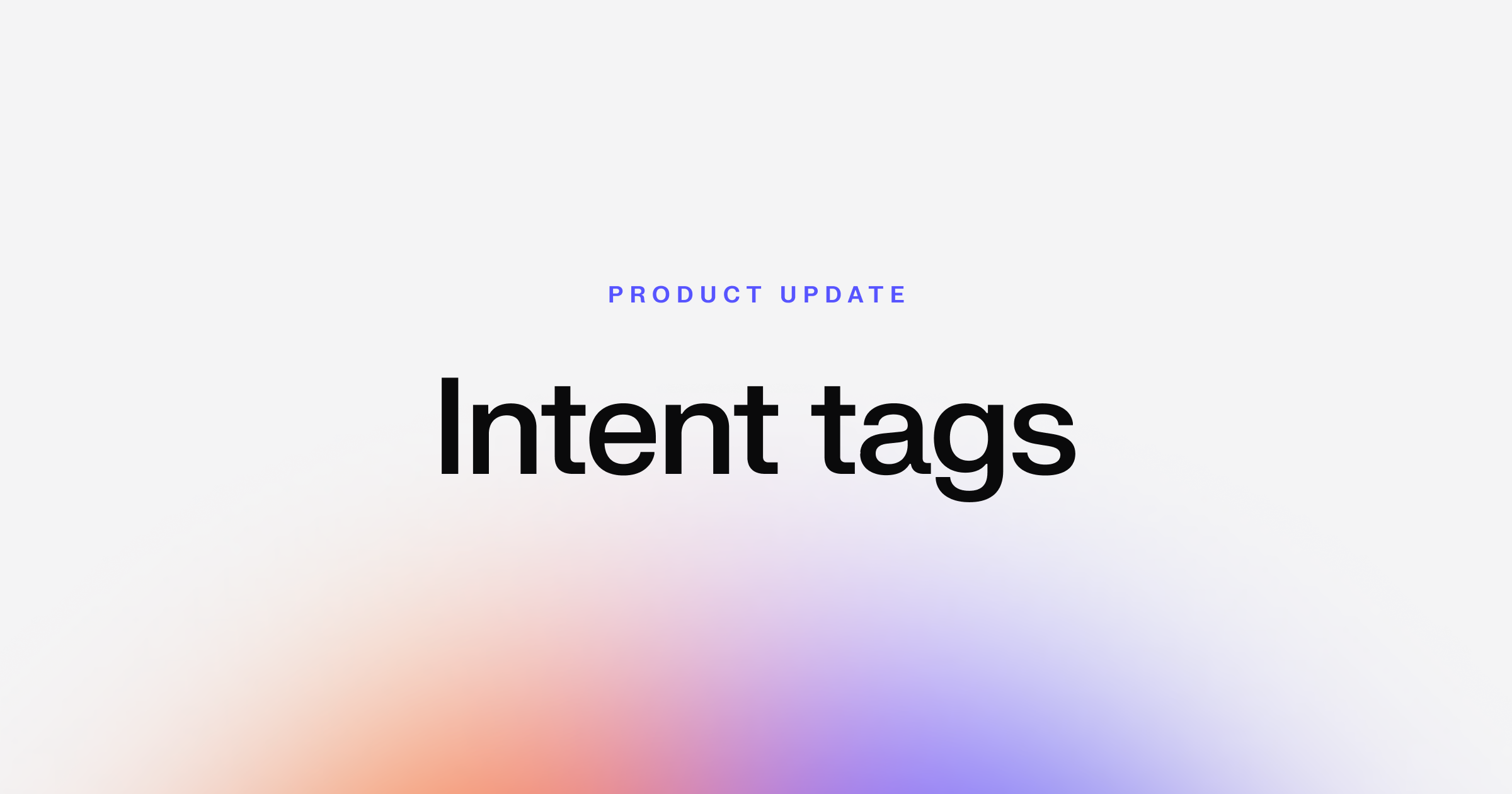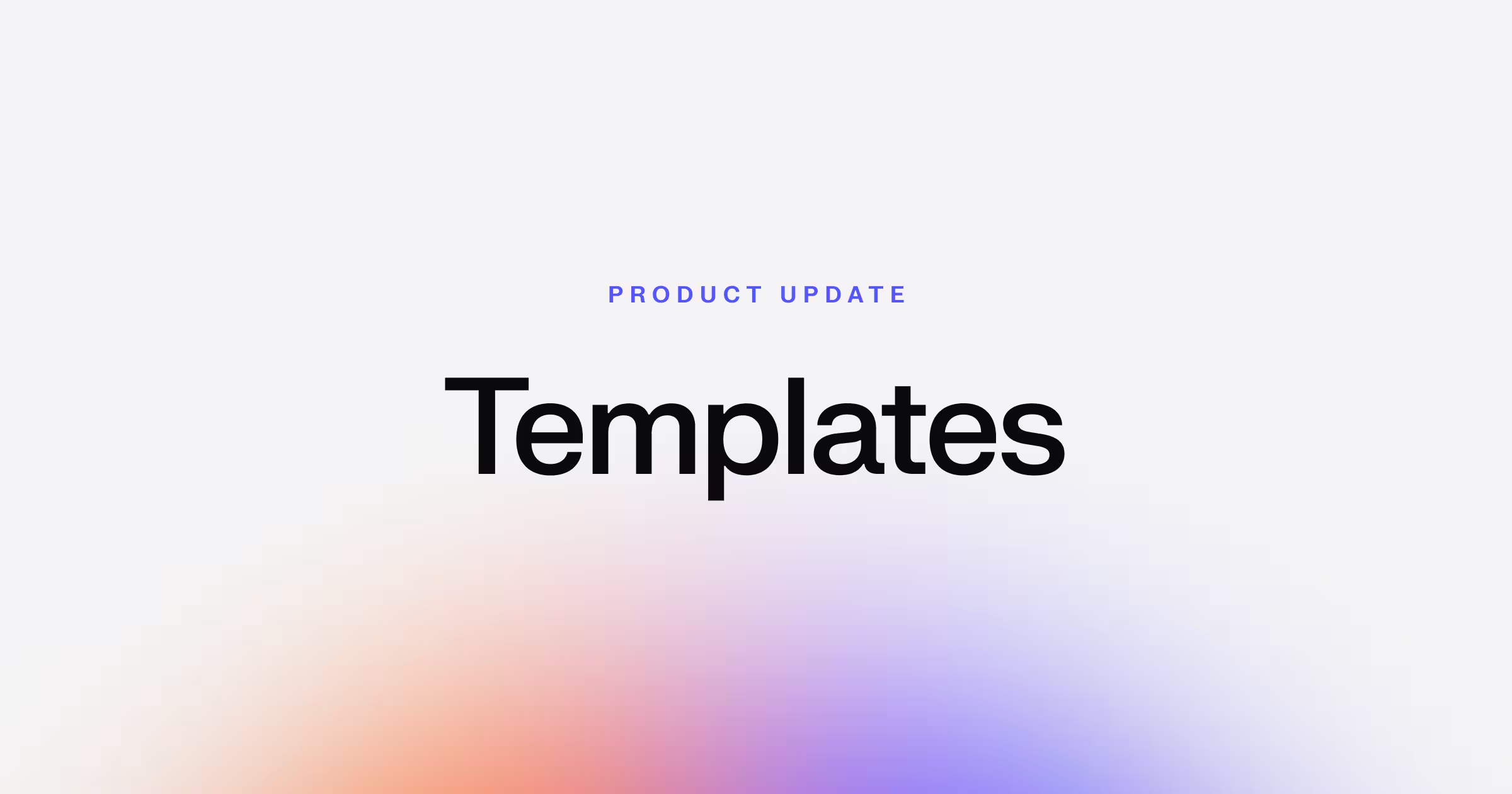The AI opportunity ahead: Insights from our report with The Harris Poll
A brief teaser of what you’ll find inside our landmark 2025 report.
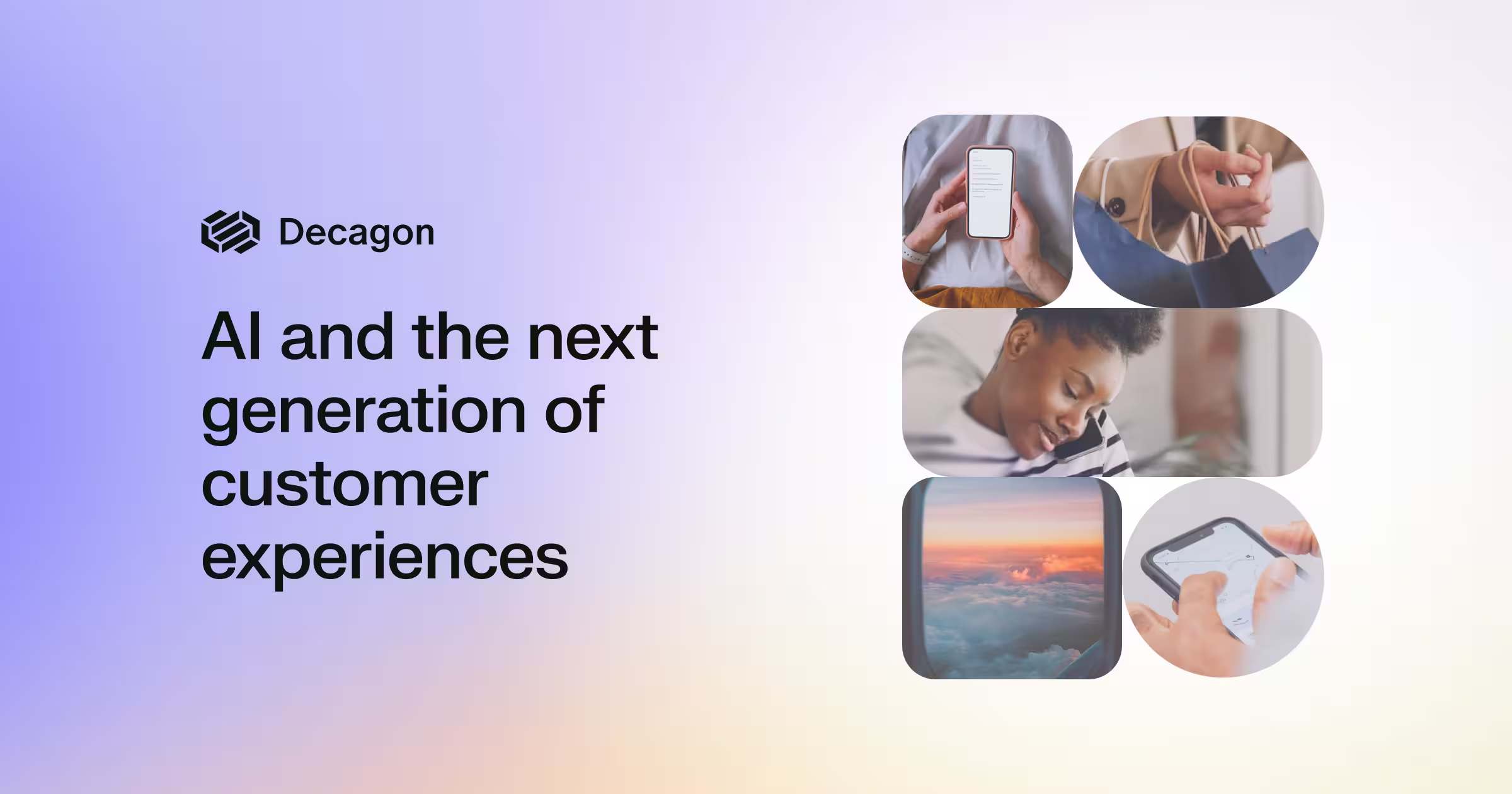
Consumer expectations are higher than ever. Today, even a single poor interaction can be enough to lose a customer for life. The brands that will differentiate themselves in the coming years will be the ones that consistently deliver fast, accurate, and emotionally intelligent experiences at scale.
That’s why we’re excited to release our new report, AI and the Next Generation of Customer Experiences. Based on a survey conducted by The Harris Poll, this report uncovers how consumers view customer service, the role of AI in delivering it, and the generational divides shaping the future of customer experience.
Here’s a brief teaser of what you’ll find inside.
How different industries stack up
When looking across industries, not all are keeping pace with consumer expectations. The survey found that sectors like Finance and Travel & Hospitality are leading the way, while industries such as Technology and Media & Telecom are trailing. These gaps reveal where companies are delighting their customers, and where they risk losing ground.

It also showed stark differences by age group. Younger consumers consistently rate their experiences lower, raising the bar for speed, personalization, and trust. For brands in sectors already struggling, this generational lens highlights a competitive risk and an opportunity to differentiate in the coming years.
The generational divide in AI trust
The same group with the highest expectations for concierge service is also the most open to interacting with AI. Among consumers aged 18–44, nearly two in three said they trust AI for customer support more now than they did a year ago.

Even more striking is the personal bond many younger consumers describe. The majority of those aged 18–44 agreed that AI chatbots can listen better than a spouse or partner, and that they feel more comfortable sharing personal details with AI than with some friends. This willingness to confide in technology underscores a shift in trust: for younger generations, AI isn’t just a tool for faster resolutions, but a trusted presence in moments that require empathy and understanding.
The cost of bad support
Customer engagement today is make-or-break. Even a single negative interaction can have lasting consequences: the majority of consumers say they would stop buying from a brand after just one poor support experience. And for some, the frustration runs so deep that more than three in ten admit they would rather go to the dentist than deal with exceptionally frustrating customer support.
These numbers make clear just how much the quality of support shapes customer behavior. Poor experiences don’t just create momentary annoyance; they erode long-term trust and loyalty. By contrast, consistent, timely, and empathetic responses help brands build durable relationships.
For businesses, the lesson is clear: customer support is no longer a cost center, but a critical driver of growth.
Read the full report today
These findings only scratch the surface. Our full report breaks down what factors matter most to consumers when interacting with AI agents for customer service, examines how preferences vary across different support channels, and shares practical steps for how brands can evolve to meet these new expectations.
Download the full report to learn more and see how your business can lead in the next generation of customer experiences.
Methodology: This research is based on an online survey conducted within the United States by The Harris Poll on behalf of Decagon from July 29–31, 2025, among 2,077 U.S. adults ages 18 and older. Sampling precision is measured using a Bayesian credible interval. For this study, the sample data is accurate to within ± 2.5 percentage points using a 95% confidence level. The credible interval will be wider among subsets of the surveyed population.For complete survey methodology, including weighting variables and subgroup sample sizes, please contact press@decagon.ai.
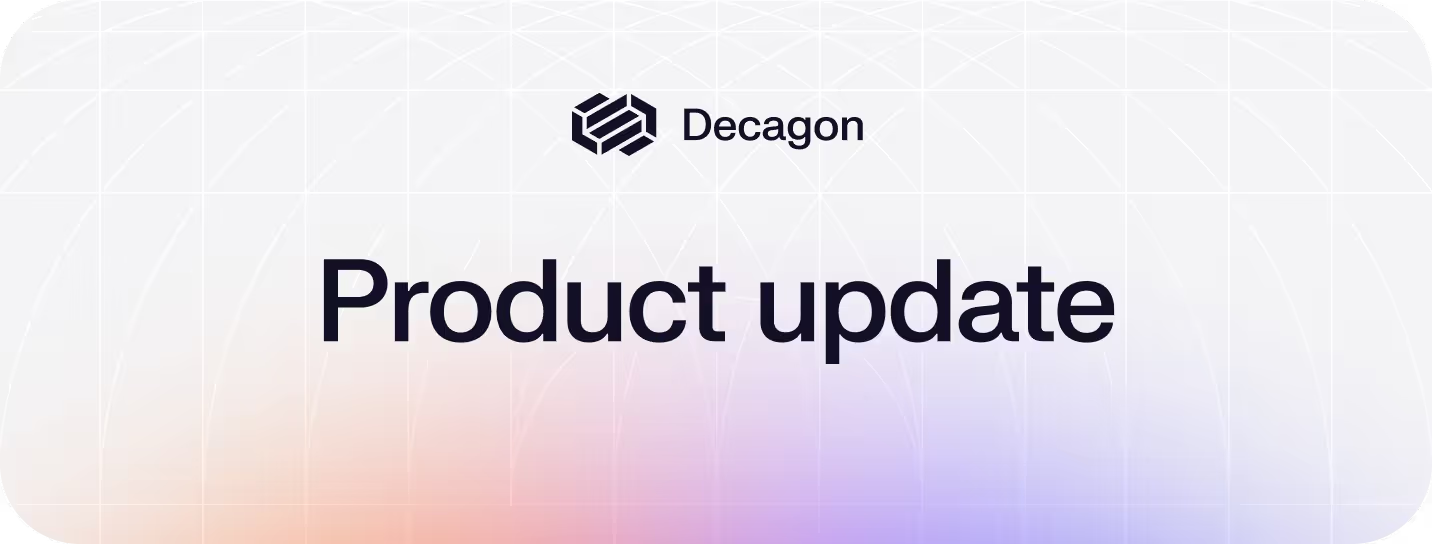

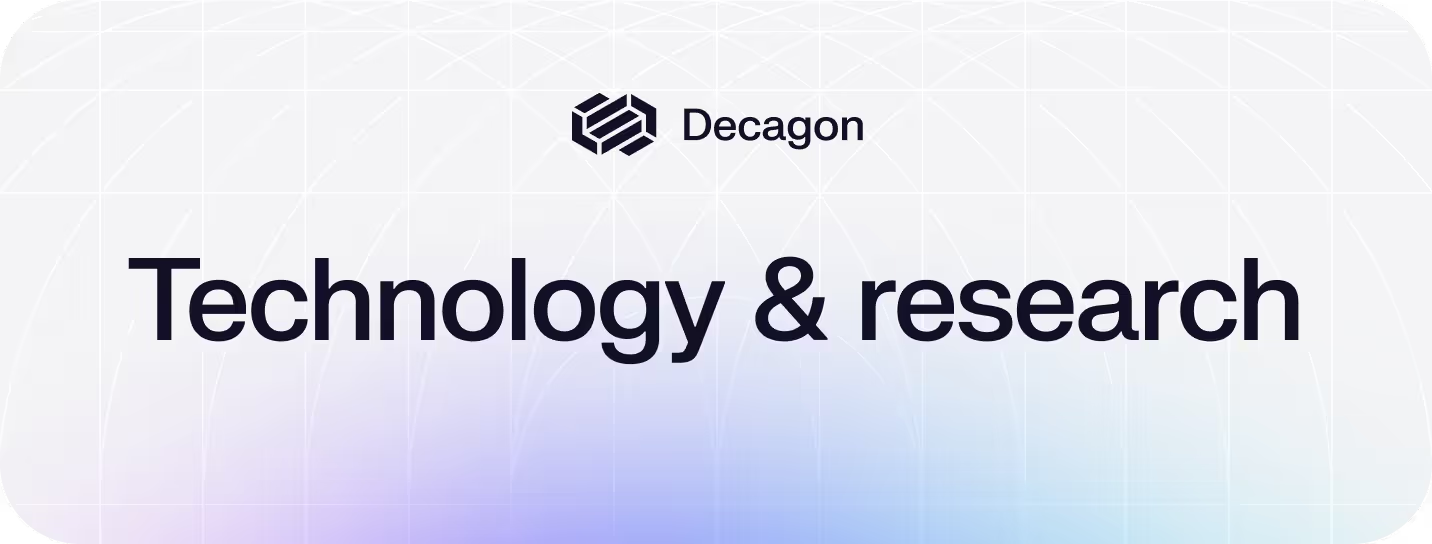

The AI opportunity ahead: Insights from our report with The Harris Poll
August 27, 2025
Consumer expectations are higher than ever. Today, even a single poor interaction can be enough to lose a customer for life. The brands that will differentiate themselves in the coming years will be the ones that consistently deliver fast, accurate, and emotionally intelligent experiences at scale.
That’s why we’re excited to release our new report, AI and the Next Generation of Customer Experiences. Based on a survey conducted by The Harris Poll, this report uncovers how consumers view customer service, the role of AI in delivering it, and the generational divides shaping the future of customer experience.
Here’s a brief teaser of what you’ll find inside.
How different industries stack up
When looking across industries, not all are keeping pace with consumer expectations. The survey found that sectors like Finance and Travel & Hospitality are leading the way, while industries such as Technology and Media & Telecom are trailing. These gaps reveal where companies are delighting their customers, and where they risk losing ground.

It also showed stark differences by age group. Younger consumers consistently rate their experiences lower, raising the bar for speed, personalization, and trust. For brands in sectors already struggling, this generational lens highlights a competitive risk and an opportunity to differentiate in the coming years.
The generational divide in AI trust
The same group with the highest expectations for concierge service is also the most open to interacting with AI. Among consumers aged 18–44, nearly two in three said they trust AI for customer support more now than they did a year ago.

Even more striking is the personal bond many younger consumers describe. The majority of those aged 18–44 agreed that AI chatbots can listen better than a spouse or partner, and that they feel more comfortable sharing personal details with AI than with some friends. This willingness to confide in technology underscores a shift in trust: for younger generations, AI isn’t just a tool for faster resolutions, but a trusted presence in moments that require empathy and understanding.
The cost of bad support
Customer engagement today is make-or-break. Even a single negative interaction can have lasting consequences: the majority of consumers say they would stop buying from a brand after just one poor support experience. And for some, the frustration runs so deep that more than three in ten admit they would rather go to the dentist than deal with exceptionally frustrating customer support.
These numbers make clear just how much the quality of support shapes customer behavior. Poor experiences don’t just create momentary annoyance; they erode long-term trust and loyalty. By contrast, consistent, timely, and empathetic responses help brands build durable relationships.
For businesses, the lesson is clear: customer support is no longer a cost center, but a critical driver of growth.
Read the full report today
These findings only scratch the surface. Our full report breaks down what factors matter most to consumers when interacting with AI agents for customer service, examines how preferences vary across different support channels, and shares practical steps for how brands can evolve to meet these new expectations.
Download the full report to learn more and see how your business can lead in the next generation of customer experiences.
Methodology: This research is based on an online survey conducted within the United States by The Harris Poll on behalf of Decagon from July 29–31, 2025, among 2,077 U.S. adults ages 18 and older. Sampling precision is measured using a Bayesian credible interval. For this study, the sample data is accurate to within ± 2.5 percentage points using a 95% confidence level. The credible interval will be wider among subsets of the surveyed population.For complete survey methodology, including weighting variables and subgroup sample sizes, please contact press@decagon.ai.






